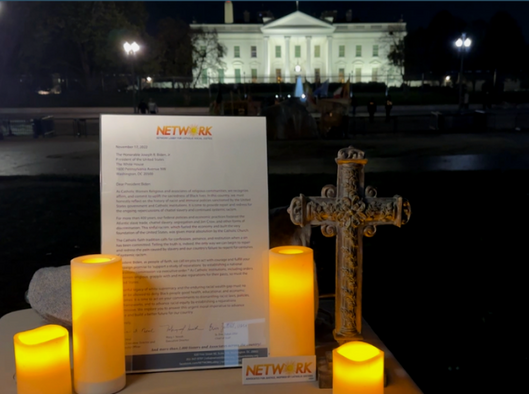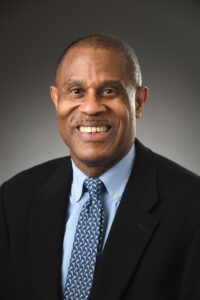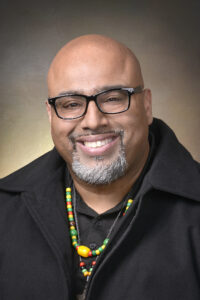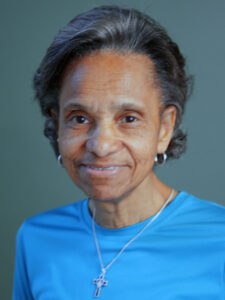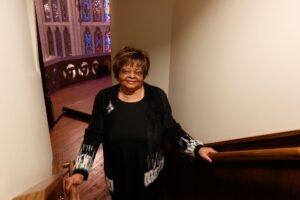
Racism, Reconciliation, and Repair
Racial Justice is Central to Renewing Society, Politics, and Church
February 1, 2023

After a consequential election year, the re-election of Senator Rev. Raphael Warnock of Georgia finalized the composition of the 118th Congress. His election, in many ways, symbolizes how the U.S. struggle toward progress is bound up in how the country deals with racism, white supremacy, and reparatory justice. The election of a Black man in a former Confederate state, while certainly symbolically powerful, doesn’t capture the work undone in securing racial justice in U.S. politics, including in elections themselves.
The first cornerstone of NETWORK’s Build Anew agenda is “Dismantle Systemic Racism,” and its placement rightly suggests that racism must be confronted at every level of our social structures for economic injustices and other wrongs to be fully addressed. The many in-person and online actions taken by NETWORK in 2022 also reflected the central prioritization of racial justice in Catholic Social Justice.
Talk About White Supremacy
In the second installment of NETWORK’s “White Supremacy and American Christianity” event in October, Fr. Bryan Massingale of Fordham University, author of “Racial Justice and the Catholic Church,” dialogued with Dr. Robert P. Jones, founder and CEO of the Public Religion Research Institute. They discussed data gathered by Jones that showed almost half of white evangelicals and almost four in 10 white Catholics in the U.S. believe that their country should be a place that privileges people of European descent and that God intends this.
“That attitude has become hardened and more dangerous,” said Massingale. “What we’re seeing now is a willingness among those who hold that ideology to use any means necessary to achieve that end… a country that says only white Americans are true Americans and all others are Americans only by exception or toleration or not really at all.”
Massingale referenced the aftermath of the 2020 presidential election, with a growing number of people questioning the legitimacy of elections themselves and adopting the position of “If my candidate loses, then by definition it was an illegitimate election.” This, coupled with very open use of voter restrictions and voter suppression, as well as the insurrection of Jan. 6, 2021, made clear to Massingale that “any means necessary” includes political violence.
Concerned that the normalization of political violence is the next stage after voter suppression and election denial, Massingale cited the violent attack on Paul Pelosi, husband of House Speaker Nancy Pelosi, drawing a connection to the rhetoric of Christian nationalist rallies across the country in the weeks preceding the attack.
“God’s angel of death is coming,” Massingale noted one rally speaker proclaiming in reference to their political opponents. “Let’s connect the dots here. … One needs to understand that even though people don’t necessarily call for overt political violence, if you say enough about divinely inspired victory and gun rights and God’s angel of death, then we can’t be surprised when people take violent means.”
Massingale also cited the “failure of religious leaders to connect the dots,” noting that Catholic bishops offered only cursory statements in response to the Pelosi attack.
Massingale’s observations also reflect a Black Catholic doing the work of educating a white, predominately Catholic audience, about the pernicious implications of racism. This is an unfair burden placed on Black people, says Dr. Ansel Augustine — to educate colleagues on racism, while continuing to endure its effects.
Author of the new book, “Leveling the Praying Field: Can the Church We Love, Love Us Back?,” Augustine told Connection, “Ministering in the church, which at times perpetuates this ‘original sin,’ constantly has us questioning and renewing our commitment to the faith,” Augustine told Connection. “It is tough having to be an ‘expert’ on something that is trying to destroy your dignity as a human being, especially within an institution that is supposed to empower you and be your safe space to simply ‘exist.’”
James Conway, a cradle Catholic in the Archdiocese of Baltimore, notes that the last two years have been different for Black Catholics.
“People no longer seem to be afraid to show any racist tendencies that they may have secretly harbored for years,” he told Connection. “Now it’s just blatant and in your face under the guise of being cultural ignorance.”
He also sees “an uptick in instances of racial aggression and microaggressions against minorities in the church.” He was told by a now former member of his parish that, because they sing gospel music, she would be taking her money and her family elsewhere, and that the parish would be closed within six months without her financial support. Two years later, the parish is still open.
Focus on Reparations
The church not living up to its own teaching on human dignity when it comes to race is a problem that goes back centuries, Sr. Patricia Rogers, OP shared in a conversation on NETWORK’s “Just Politics” podcast in November.
She asked, “Why is it that Black Catholic children were denied a Catholic education before the Civil Rights Movement? I never saw a Black nun, and then I learned that the first Black nuns had to establish their own congregations because they were not welcome. And it still makes me wonder, what happened to the dignity of all humans? You just don’t know what to do with that sometimes.”
This raises the question of reparatory justice for harm inflicted over generations and the need for reparations in the U.S. today. In that area, NETWORK has hosted and participated in numerous events, including a June action near the White House calling on President Biden to take executive action to set up a commission on reparations, as called for in H.R. 40, a bill first introduced in Congress in 1989.

Cleo and Yvonne Nettles speak at the June 15 prayer vigil for reparations at St.
Aloysius-St. Agatha Parish in Cleveland.
In June, NETWORK also helped organize an in-person event “Repair and Redress: A Vigil for Reparations” at St. Aloysius-St. Agatha Parish in Cleveland. The parish and school community, Sisters, the Cleveland NETWORK Advocates Team, justice-seekers, and NETWORK staff together made a stand for reparations for Black Americans and called for a reparations commission by Juneteenth.
Rev. Traci Blackmon of The United Church of Christ spoke to the theological call to repair a society broken by the sin of chattel slavery and the racism that has followed in its wake, as well as of the need to atone and provide redress.

Rev. Traci Blackmon, Associate General
Minister of Justice & Local Church Ministries
for The United Church of Christ, speaks at
NETWORK‘s reparations vigil in Cleveland.
“The reason we have not reckoned with racism in this country,” she said, is that “decision-makers have decided that God cannot be Black, that God cannot be Brown, that God indeed must be white. And therefore we have created a fractured… society.”
NETWORK continued the push to set up a reparations commission by executive action following the November elections with the event “Faith in Reparations.”
“I’m so sick of living in a nation that treats white rage as a sacrament and black grief as a threat,” Rev. Dr. Jacqui Lewis, senior minister at Middle Collegiate Church, said at that event.
“White rage is why we had Jim Crow. White rage is why we had redlining. All of the structures in our nation are built around white rage’s disdain for Black people’s beauty and body and joy,” she continued. “I’m so tired of the permanent pernicious nature of white supremacy in this nation that is now in a wicked dance with Christianity, blessing with Jesus’s name and in the name of God this vile hatred that is always directed to my people.”
Sr. Anita Baird, DHM, founding director of the Archdiocese of Chicago’s Office for Racial Justice, said:
“Reparations are…about America fulfilling her promise of life, liberty, and the pursuit of justice for all. And until this injustice is acknowledged and rectified, there can be no healing and no moving forward. The Biden administration must uphold its promise to African Americans. It is a matter of justice. It is a matter of life. Now is time.”
The NETWORK community will continue calling on Congress and President Biden to act on their commitments to dismantle racist laws, policies and frameworks, and advance racial equity.
Leticia Ochoa Adams and Elissa Hackerson contributed to this feature.







